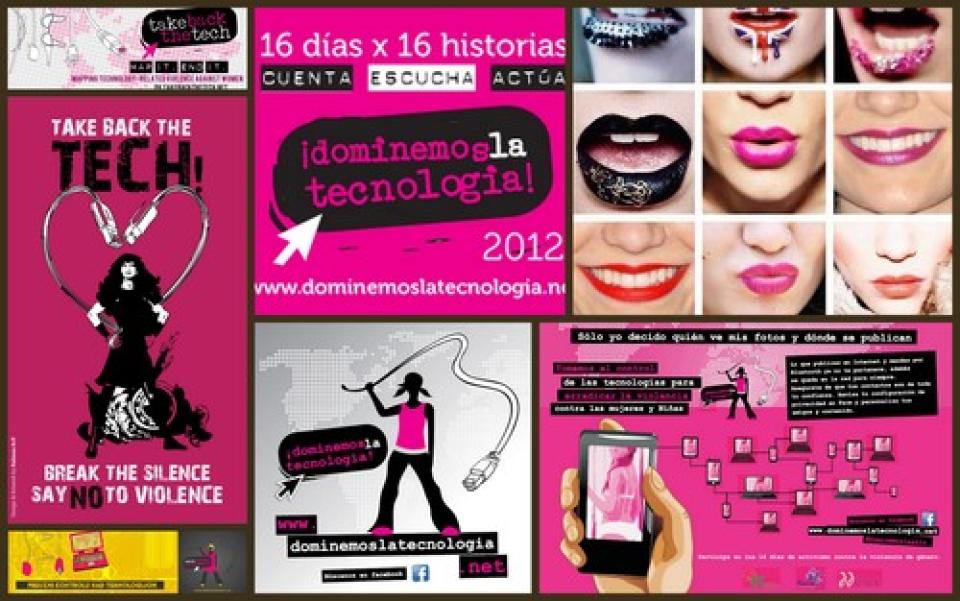
The Global Information Society Watch 2013 report, written by Goñi and Ana María Laura of ICTWatch (ObservaTIC), of the University of the Republic of Uruguay, is entitled ICTs as a means for empowerment and influence: A democratising proposal for female domestic workers in Uruguay . GenderIT.org interviewed Goñi to understand how inequality in access to and ownership of ICTs affects this sector of workers, and ways they could use them to claim their rights.
Flavia Fascendini: How did you chose this subject for the report, and why do you focus on the use of ICTs by the Domestic Workers Union?
Maria Goñi: We decided to share this experience for several reasons. First, Uruguay is a country that has achieved high rates of access to ICTs by various sectors of the population, reducing the gap between men and women. However, for some sectors these gaps are still present. For example, the richest fifth of the population in Uruguay has an access rate almost two times higher than that of the poorest fifth of the population.
With this example we sought to show the persistent difficulties in access to, and even more so, use of, ICTs by domestic workers. These are women who come from low socio-economic sectors, with low levels of education, whose rights as workers have not been respected or even recognized for a long time. This case allows us to show the need to design strategies and specific actions to promote and encourage access to and use of ICTs in different sectors of the population – particularly women – so as to reduce the new inequalities that are becoming apparent with the development and expansion of ICTs.
Second, this case allows us to show the possibilities that ICTs offer to women in different sectors. The inclusion of ICTs in the everyday life of women as a tool for social change and expansion of citizenship have become priorities in this digital age, an age which is not experienced to the same degree by all. Difficulties in access, training, and appropriation of ICTs by women from different socio-economic backgrounds and geographic locations are a reason for concern when we understand the impact this has on the active exercise of their rights and on opportunities to participate in all spheres of social, political, and economic life.
Third, in regards to public policy we sought to show the lack of specific policies that address the particular situation of these groups. There are no actions that tend to promote their use of ICTs, not only for incorporating these tools in the work environment, but also, and even less so, that think about the use of ICTs for improving their ability to engage in political and public advocacy with other groups when it comes to negotiation and coordination. This situation means that different groups of low-income women with lower educational levels, as in the case of domestic workers, remain segregated from advances in technology in a country that has made significant progress in access and use in general terms in recent years.
This work is currently being taken on by women’s and feminist organizations without support or coordination from the state.
FF: How does the subject of the report relate to the rights of women?
MG: From a rights perspective, women employed in paid domestic work have historically had few guarantees of their labour rights and faced serious barriers to unionisation and collective organisation. The characteristics of paid domestic work in private households make interaction and the possibility of meeting other women employed in the industry extremely difficult, since they do not share a physical workspace.
The conceptual framework of gender equity in the information society is, in many respects, still new. ICTs are not gender neutral if we look at factors such as degree of access, and intensity and types of use or acquisition of technology skills by men and women. Their development has generated differential impacts that should be analyzed based on existing inequalities.
In this sense, the challenge is to build policies aimed not only at strengthening the access to technology for women of different regions, ages, and ethnicities – but that also encourage the development of skills and abilities that enable them to appropriate the technology and serve to promote the economic, political, and social empowerment of women and help strengthen gender equality in the region.
Access to and use of ICTs should be considered a right in our day and age, where the expansion and advancement of these technologies are essential for the social, economic, and cultural development of our societies.
FF: The report says: “Domestic labour has historically been a sector with reduced access to labour rights and with serious issues in regard to unionisation and collective organisation.” Did this initiative involving the Domestic Workers Union (DWU) get to promote the enhancement of their political participation and citizenship through access to and use of ICTs?
MG: ICTs can amplify, depending on how they are used, the participation and opinions of women, and encourage their presence in different spaces, and they can also increase the ability of women to carry out tasks in different spaces. To make this possible it is always necessary to promote education and training processes, mainly for those women with fewer resources, so that they can choose from among the range of technologies as well as look at possible strategies for use and action.
In this sense, ICTs represent a challenge to the extent that they are a key symbolic and political space for development and social justice. The active participation of women in this area is essential for incorporating their voices and perspectives on the new processes that are being built.
Given this, the policies and actions that are proposed must take into account the situations of women in relation to the different sectors where ICTs have expanded. Having current information – quantitative and qualitative – will allow appropriate policies and actions to be proposed, so as to reverse the gender inequalities that we already see – or at least work towards that in the medium and long term.
The challenge is for policy proposals to aim not only at strengthening the access to technology for women of different regions, ages, and ethnicities – but that they also encourage the development of skills and abilities that enable them to appropriate the technology and serve to promote the economic, political, and social empowerment of women and help strengthen gender equality in the region.
FF: Let me go back to the question you pose in the report: Why is it difficult for women to appropriate ICTs and use them as “techno-political” tools in order to transform inequalities?
MG: For the same reasons that it is harder to access decision-making positions, political advocacy, scientific knowledge, and/or better pay and social recognition. The gender digital divide is an inequality that adds on to existing ones, as one more expression of gender inequalities. It interacts with economic and power relationships, belief systems, prejudices, and stereotypes that also reproduce and consolidate those inequalities. As such, specific initiatives to address this phenomenon are needed.
Read the full report from Uruguay for Global Information Society Watch 2013
Image: Illustration from the Global Information Society Watch 2013
- 13900 views






Add new comment